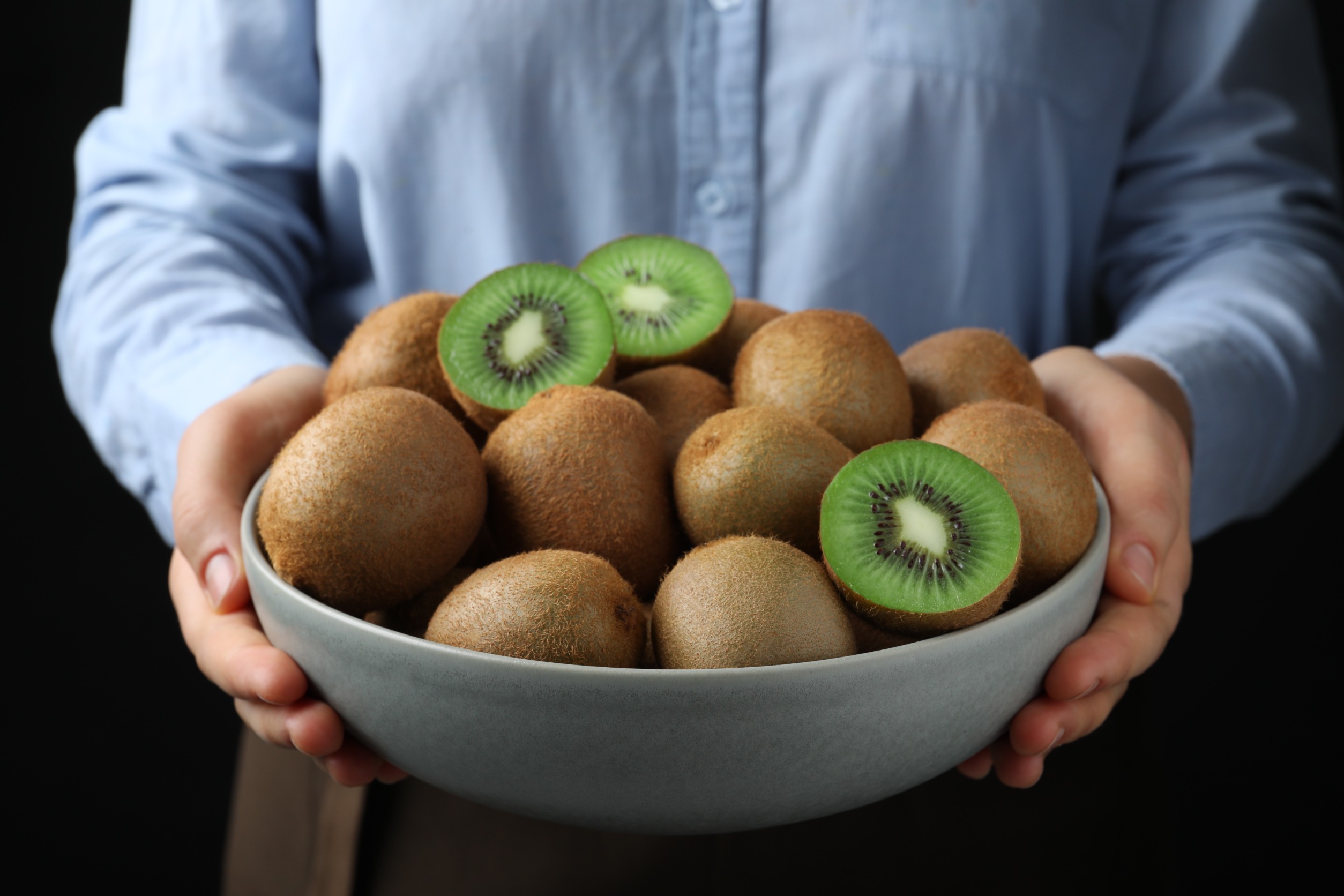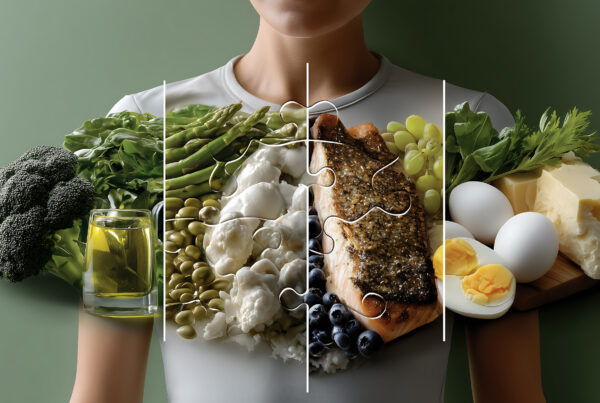For example, there’s data showing that both kiwis and tart cherries are linked to sleep improvements.
People who, for four weeks, ate two kiwis approximately one hour before bed fell asleep 14 minutes faster and slept 40 minutes longer than people who did not eat any kiwis, according to a study from Taiwan. Another study, this one from the United Kingdom, found people who drank 8 ounces of tart cherry juice twice a day — 30 minutes after waking up, and also 30 minutes before dinner — slept longer and more “efficiently” than people who drank a placebo cherry drink.
What could explain the sleep benefits of these foods? Dr. St-Onge says both kiwi and tart cherries contain melatonin. Melatonin is a hormone naturally produced by the body that helps regulate the sleep-wake cycles. It’s also found in some foods (and in supplements).
Increasing melatonin levels at certain times of the day by way of eating melatonin-rich foods could have a beneficial effect on sleep, St-Onge says — though she’s quick to add that more research is needed. (Neither of the studies assessed whether people’s melatonin levels actually changed after eating the kiwis or drinking the tart cherry juice.)
So should you stock up on kiwis and tart cherry juice if you’re having trouble sleeping? There’s probably no harm in trying these out, but at this point, sleep experts aren’t recommending them to patients. Still, the research is valuable because it lends support to the idea that melatonin-rich foods might increase melatonin in the body — and improve sleep as a result.
Some of St-Onge’s own research has found evidence that other melatonin-containing foods may also promote sleep. These include various types of dairy foods — including milk from cows who were milked at nighttime, when the melatonin content of their milk may be elevated. But again, she says more research is needed to iron out with certainty how eating melatonin-rich foods can affect sleep, she says.
That said, there are other, clearer associations between diet and sleep.
Are Certain Diets Better for Sleep?
Research has found links between a Mediterranean-style diet and improved sleep. In one study, the higher a person scored on a test designed to measure their adherence to the Mediterranean diet, the greater their overall sleep quality was.
As you probably know by now, a Mediterranean diet is loosely defined as one high in plant foods, like vegetables, fruits, legumes, and seeds, as well as fish, whole grains, olive oil, and dairy, and low intakes of alcohol. It also tends to eschew red meat and refined carbohydrates.
St-Onge has also conducted research on the Mediterranean diet and sleep. In one study, she and her fellow researchers analyzed diet and sleep data collected from more than 2,000 individuals. “We found greater adherence to Mediterranean diet was associated with reduced risk of short sleep and insomnia symptoms,” she says.
The study was observational, meaning it simply looked for associations between diet and sleep. It cannot say whether switching to a Mediterranean diet would lead to sleep improvements. But St-Onge says some elements of the Mediterranean diet may account for its links to improved sleep. She says this diet tends to pack lots of fiber and low amounts of sugar. According to her, the data showed that “higher fiber consumption is associated with more deep sleep and less light sleep, and consuming less sugar is associated with fewer arousals at night.”
Again, she says more research is needed to tease out just how these diet elements may work to bolster sleep quality. But of all the diets out there, the Mediterranean diet is arguably the one most consistently linked with positive health outcomes and low rates of disease. And because we know a poor diet can dysregulate the human body in ways that lead to obesity, diabetes, and other health issues — all of which have also been linked in various ways to poor sleep — it makes sense that a healthy diet may help promote good sleep.
How Poor Sleep Can Change Your Eating Habits
A number of studies have linked poor sleep with increased cravings for junk foods. For example, one study found that cutting women’s sleep time by 33 percent increased their hunger, food cravings, and portion sizes while eating the next day.
Another study, using brain scans, found that people deprived of sleep for one full day showed reduced activity in the parts of the brain that regulate appetite and self-control. At the same time, other parts of the brain were more active, and this seemed to lead to greater “food desirability,” the authors of that study wrote.
“We know very well that poor sleep affects food preferences,” St-Onge says, from research demonstrating that this happens when we observe people’s behavior under restricted sleep situations, to research looking at the brain activity of sleep-deprived people.
St-Onge has also conducted work in this area. In one of her studies, she and her fellow researchers explain how the parts of the brain that help control hunger and willpower were more active after a night of good sleep, while the reward centers of the brain that respond to food we find pleasurable were more active after a poor night of sleep. And food choices were affected by sleep, too. When people were deprived of sleep, she says: “They ate more fat and saturated fat, and they found these foods more pleasurable.” In other words, the brain seems to be more susceptible to food-based temptations when fatigued.
She points out that other research has linked a lack of sleep to higher intakes of fat (according to a study from the European Journal of Clinical Nutrition) and carbohydrates (according to a study from the journal Sleep) — and that it’s possible some hunger-related hormones rise or fall as a result of poor sleep, which could help explain these effects.
So, what to make of all this? Clearly, there are ties between what a person eats and how they sleep. And St-Onge says this relationship likely works in both directions — meaning sleep affects a person’s food choices, and a person’s food choices affect sleep. But as of today, it’s difficult to say just what (or how) a person should eat to improve their sleep.






